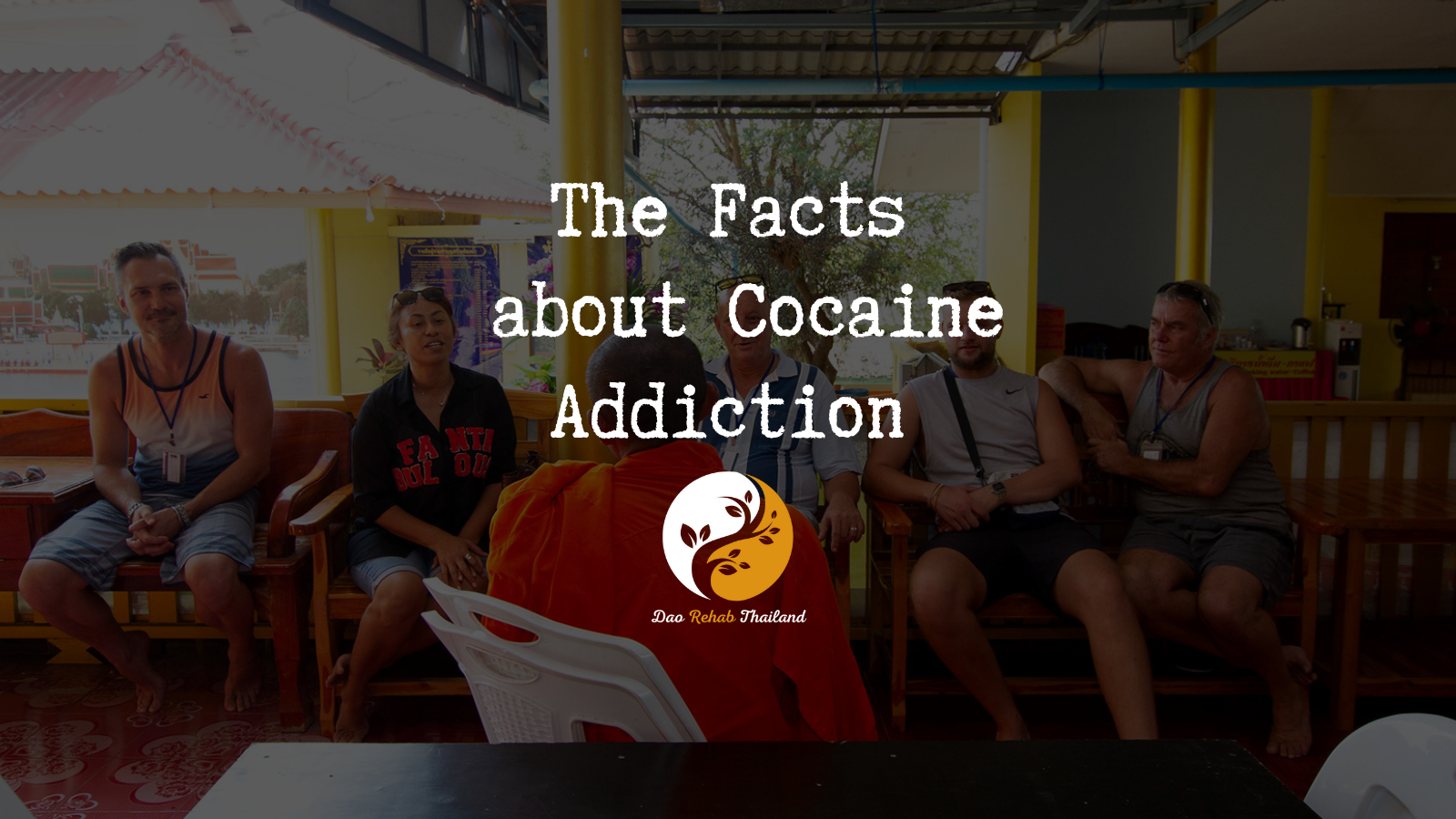
Addiction to cannabis, marijuana, grass
Addiction to cannabis, marijuana, grass
“Turning the impossible into possible”

"Detox from Addiction to cannabis, marijuana, grass at a Luxury Holistic Center in Thailand and Israel"

Addiction to cannabis, marijuana, grass
For those unfamiliar with the facts, the term “addiction” encompasses various aspects that, after thorough examination, can determine whether a person is addicted or not.
DaoTherapy holds the understanding that focusing on whether marijuana is addictive is a distraction from the real issue.
The correct question to ask is whether you have an addictive personality or not.
"Holistic Center for Trauma, Addiction, and Mental Imbalance Treatment in Thailand"
“Come to the beginning of the journey to freedom from addiction to alcohol, drugs, and pills, and rediscover your life within the quiet embrace of DaoTherapy Rehab in Thailand—where holistic healing meets empowering recovery.”
DaoTherapy Holistic Rehab
Key Elements of Addiction to cannabis, marijuana, grass.Detox:
Medical Supervision: Addiction to cannabis, marijuana, grass. must be conducted under medical supervision, as the body may experience withdrawal symptoms. These can include nausea, anxiety, muscle aches, and insomnia. A medical team will monitor and manage these symptoms to ensure the patient’s safety and comfort.
Holistic Therapies:
Holistic Therapies: Many detox programs incorporate holistic therapies such as mindfulness, yoga, and meditation to help individuals cope with stress and anxiety during the detox process. These therapies support the mind-body connection and contribute to overall recovery.
Tapering Process
Tapering Process: Addiction to cannabis, marijuana, grass.detox often involves a gradual tapering of the drug to reduce withdrawal severity. Doctors will slowly decrease the dosage over time to allow the body to adjust to lower levels of the substance.
Psychological Support:
Psychological Support: Like any addiction recovery process, detox from Addiction to cannabis, marijuana, grass.includes psychological support. This can involve counseling, therapy, or support groups to address the mental and emotional aspects of addiction.
Post-Detox Treatment:
Post-Detox Treatment: After completing detox, continuing treatment is crucial to prevent relapse. This often includes participation in ongoing therapy, group support, and the development of new coping strategies to maintain sobriety.
What is addiction?
Addiction is generally characterized by compulsive and obsessive behavior aimed at obtaining the desired stimulus or excitement, which continues even when it leads to negative and destructive consequences, often at the expense of other important needs.
The question is whether marijuana, cannabis, or weed controls your life—whether you feel you need it with you, whether you depend on it for social events, and whether you turn to it in times of stress and anxiety.
Marijuana does relieve pain.
Do you want to live an entire life without pain?
It is true that compared to drugs like heroin, cocaine, crystal meth, or prescription pills, which can all end in death, marijuana is often perceived as harmless. Heavy consumption of cannabis can lead to drowsiness, laughter, and increased appetite in the best case, and potential anxiety in the worst case (this anxiety is sometimes linked to its illegal status and the long-standing propaganda that has deterred first-time users). But what happens when sexual function declines due to marijuana use? What happens when work performance drops, when functioning at home suffers, when relationships end after the next joint is lit, when psychotic episodes occur, or when initial anxiety resurfaces repeatedly, leading to increased drug use?
Marijuana does relieve pain, but so do other drugs; in fact, every drug acts as a pain reliever in its unique way. The belief in the drug, the notion that one cannot function without it, is a false belief. There are always alternative ways, and marijuana addiction can be treated. While there is a strong movement advocating for the legalization of marijuana, DaoTherapy does not hold an opinion on whether marijuana is a drug or whether it should be legal or not. We care about the individual, their personal distress, and their search for comfort, peace, and healing in places that do not truly solve their issues but instead create dependency on substances that alter mood for only a short while. We encourage you to reach out today for an assessment if an issue exists and receive proper and tailored guidance that could save you a fortune.

contact us
Contact us with your questions
We would love to speak with you! Feel free to reach out with any questions.

get in touch
Schedule a free consultation
Schedule a free consultation with our team and let’s make things happen!
Are you addicted to hashish, grass, and cannabis?
Today, the use of grass has become very common among adults and youth, men and women, across all sectors of the population, and unfortunately, even among children and teenagers, despite its illegality.
The use of grass is now perceived by many as non-dangerous, non-addictive, and even less harmful than alcohol, with calls for its legalization.
However, it is possible to become addicted to this drug, and there is certainly a risk of transitioning to harder drugs. With the use of grass or other soft drugs, it is not always clear or understood when a person is still in control and when they have begun to lose that control and slide down the steep slope called addiction.
Here are some questions that can help guide you to check if you are addicted to grass.
Try to answer the questions as honestly as possible and assess for yourself whether you have lost control over your use of grass and if it is advisable to seek professional help.
Side effects of cannabis, marijuana, and grass.
“Amotivational syndrome” – Studies have shown that cannabis can be so enjoyable that some people prefer it over anything else. Such an effect of cannabis can sometimes lead to procrastinative behavior, where tasks are postponed to the next day.
For some people, smoking when there is a long list of chores and tasks looming can be highly problematic, as it creates a new set of priorities.
The clear solution for these individuals is to avoid consuming cannabis during busy times or when there are significant prior obligations. It is recommended to complete all tasks and responsibilities first and then relax and smoke without worries.
On the other hand, there are those, such as patients, who consume cannabis throughout the day. For them, the solution lies in choosing the right strains that allow them to remain energetic and continue their day without “crashing.”
If obtaining a specific cannabis strain that allows for a regular and normative lifestyle is not possible, a few activities can be considered to change the feeling: regular exercise and healthy eating can help stay alert and full of energy.
Nutritional supplements, meals rich in omega-3 (such as fish and avocado), and daily intake of vitamins like B12 can also assist in boosting energy levels.
Paranoia and anxiety.
Many consumers can attest that in certain cases, they have experienced negative effects from cannabis use, such as anxiety or intrusive thoughts after smoking too much. When this happens, many people become anxious and find it very difficult to calm down afterward, at least until they take a hot shower or fall into a deep sleep.
However, it turns out that there is at least one solution that can help – black pepper. Simply chewing or smelling black pepper can help calm down and address the negative aspects of cannabis.
Scientists believe this works because THC from cannabis and the terpenes from black pepper bind to the same cannabinoid receptors in the brain. Together, they create a calming effect.
Fragmented memory.
Many consumers can attest that in certain cases, they have experienced negative effects from cannabis use, such as anxiety or intrusive thoughts after smoking too much. When this happens, many people become anxious and find it very difficult to calm down afterward, at least until they take a hot shower or fall into a deep sleep.
However, it turns out that there is at least one solution that can help – black pepper. Simply chewing or smelling black pepper can help calm down and address the negative aspects of cannabis.
Scientists believe this works because THC from cannabis and the terpenes from black pepper bind to the same cannabinoid receptors in the brain. Together, they create a calming effect.
We smoke to live and live to smoke.
Fragmented Memory: Some cannabis users may occasionally experience issues with short-term memory or thought fragmentation, especially during periods of heavy use. Regular users of cannabis have likely encountered moments when they suddenly forgot what they were talking about, experienced a slight disruption in memory, or felt momentarily disoriented. Since cannabis affects individuals differently, some may not be bothered by this, while others may find it troubling and fear that the process is irreversible. Through reading, learning, practicing, and stimulating the brain, it is possible to keep it alert and refreshed. Additionally, physical exercise is known to promote the renewal of brain connections, which are crucial for memory formation and retention. A healthy diet can also contribute, with foods like eggs, artichokes, and pistachios proven to enhance memory. Regular consumption of such foods may help improve memory and reduce its susceptibility to the effects of cannabis use.
Munchies
“Whoever knows how to be satisfied with little will always be content.”
One of the notable benefits of the cannabis plant is its ability to induce a healthy appetite. However, while this is beneficial for cancer patients and other medical users, it can be a drawback for those looking to stay fit and avoid overeating when smoking.
There are a few ways to counteract this effect of cannabis. For instance, removing unhealthy foods from the house in advance can prevent mindless snacking. It is advisable to prepare healthy, guilt-free snacks in the fridge ahead of time.
Additionally, maintaining regular meal schedules can reduce the intensity of appetite caused by cannabis. It’s also important to note that certain strains may induce more appetite than others due to their varying compositions.
Despite the appetite stimulation caused by cannabis, recent studies have shown that cannabis users tend to have a better chance of maintaining a healthy weight and insulin levels, which help regulate weight.
Treatment for cannabis, marijuana, and hashish addiction.
Fragmented Memory: Some cannabis users may occasionally experience issues with short-term memory or thought fragmentation, especially during periods of heavy use. Regular users of cannabis have likely encountered moments when they suddenly forgot what they were talking about, experienced a slight disruption in memory, or felt momentarily disoriented. Since cannabis affects individuals differently, some may not be bothered by this, while others may find it troubling and fear that the process is irreversible. Through reading, learning, practicing, and stimulating the brain, it is possible to keep it alert and refreshed. Additionally, physical exercise is known to promote the renewal of brain connections, which are crucial for memory formation and retention. A healthy diet can also contribute, with foods like eggs, artichokes, and pistachios proven to enhance memory. Regular consumption of such foods may help improve memory and reduce its susceptibility to the effects of cannabis use.
Munchies
“Whoever knows how to be satisfied with little will always be content.”
One of the notable benefits of the cannabis plant is its ability to induce a healthy appetite. However, while this is beneficial for cancer patients and other medical users, it can be a drawback for those looking to stay fit and avoid overeating when smoking.
There are a few ways to counteract this effect of cannabis. For instance, removing unhealthy foods from the house in advance can prevent mindless snacking. It is advisable to prepare healthy, guilt-free snacks in the fridge ahead of time.
Additionally, maintaining regular meal schedules can reduce the intensity of appetite caused by cannabis. It’s also important to note that certain strains may induce more appetite than others due to their varying compositions.
Despite the appetite stimulation caused by cannabis, recent studies have shown that cannabis users tend to have a better chance of maintaining a healthy weight and insulin levels, which help regulate weight.
Treatment for cannabis, marijuana, and hashish addiction.
Detoxification and recovery using the 12-step program for cannabis, hashish, and marijuana addiction is a structured approach aimed at helping individuals overcome their dependence on these substances. The 12-step program, originally developed by Alcoholics Anonymous (AA), has been adapted for various types of addictions, including cannabis. Here is an explanation of how this method can be applied to cannabis addiction:
1. Admission of Powerlessness: The first step is for individuals to admit that they are powerless over their addiction and that their lives have become unmanageable. This acknowledgment is the foundation of change.
2. Belief in a Higher Power: The individual must come to believe that a power greater than themselves can restore their sanity. This does not necessarily mean religious faith but an acceptance that support is needed from external sources.
3. Decision to Turn Over: The third step involves making a conscious decision to turn their will and life over to the care of a higher power, however they define it. This helps individuals feel supported and not alone in their recovery journey.
4. Moral Inventory: Individuals are guided to conduct a searching and fearless moral inventory of themselves, recognizing the emotional and behavioral patterns that contributed to their addiction.
5. Admittance to Wrongdoings: The fifth step requires individuals to admit to themselves, to their higher power, and to another person the exact nature of their wrongs. This is a step towards accountability and honesty.
6. Readiness for Change: Participants must be willing to have their defects of character removed and make changes to their behavior.
7. Humbly Asking for Help**: The seventh step involves asking a higher power to help remove these shortcomings, reinforcing the need for external guidance.
8. List of Amends: Individuals are encouraged to make a list of those they have harmed due to their addiction and be willing to make amends.
9. Making Amends: Direct amends are made to those affected, wherever possible, except when doing so would cause further harm.
10. Continued Inventory: Individuals maintain a personal inventory and promptly admit when they are wrong, promoting continuous self-awareness and improvement.
11. Spiritual Connection: This step focuses on deepening the individual’s conscious contact with their higher power through prayer or meditation, enhancing inner peace and resilience.
12. Helping Others: The final step is to carry the message of recovery to others struggling with similar addictions, fostering a supportive community and reinforcing the individual’s commitment to a substance-free life.
By following these steps, individuals working through cannabis addiction can find structure, community support, and a spiritual foundation for maintaining long-term sobriety.








